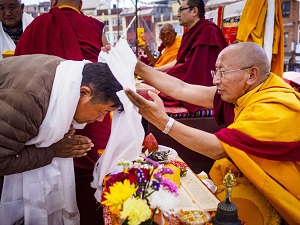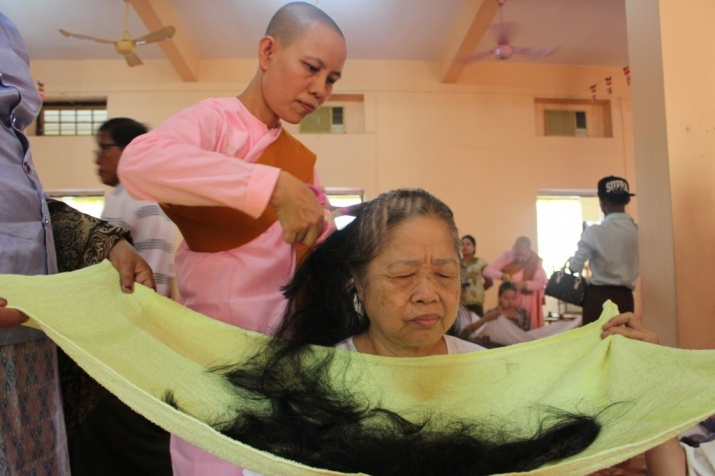
"The un-skillfulness comes from our mind, and the un-skillfulness can be transformed by our mind…”
If there is light, there is enlightenment in your consciousness; there is a strong determination, the awareness that "This is something negative, this is something harmful… and I am determined not to allow it to happen again," and then the mind is transformed… And now, with your enlightenment, with your determination, you will never allow these conditions to come together again in order to repeat the same thing.
Thich Nhat Hanh, in ”Beginning Anew” Dharma Talk. Photo: Brigitta Moser

 <<
<< 








 "Maybe someday in the future a new king will arise who doesn’t like paper money. He’ll have us use wax droppings instead—take sealing wax, melt it, stamp it into lumps, and suppose it to be money. We’ll be using wax droppings all over the country, getting into debt all because of wax droppings. Let alone wax droppings, we could take chicken droppings and turn them into money! It could happen. All our chicken droppings would be cash. We’d be fighting and killing one another over chicken droppings."
"Maybe someday in the future a new king will arise who doesn’t like paper money. He’ll have us use wax droppings instead—take sealing wax, melt it, stamp it into lumps, and suppose it to be money. We’ll be using wax droppings all over the country, getting into debt all because of wax droppings. Let alone wax droppings, we could take chicken droppings and turn them into money! It could happen. All our chicken droppings would be cash. We’d be fighting and killing one another over chicken droppings."




